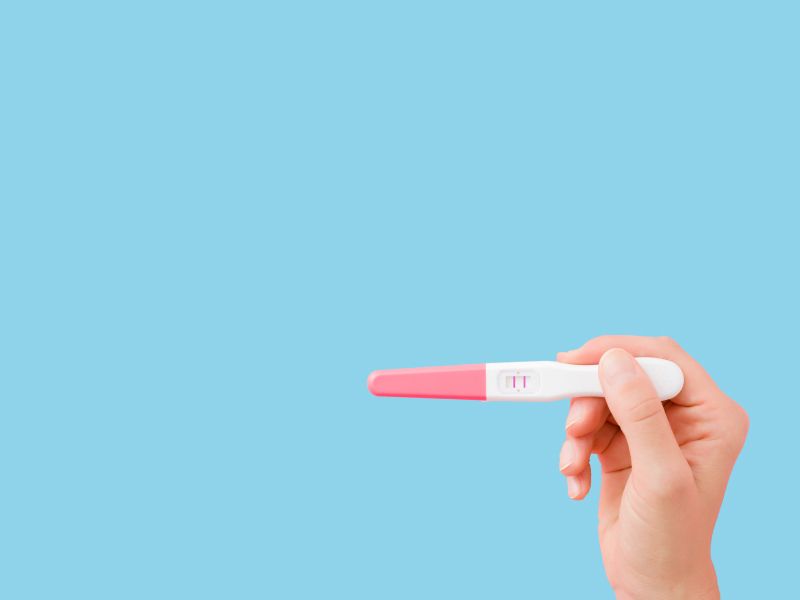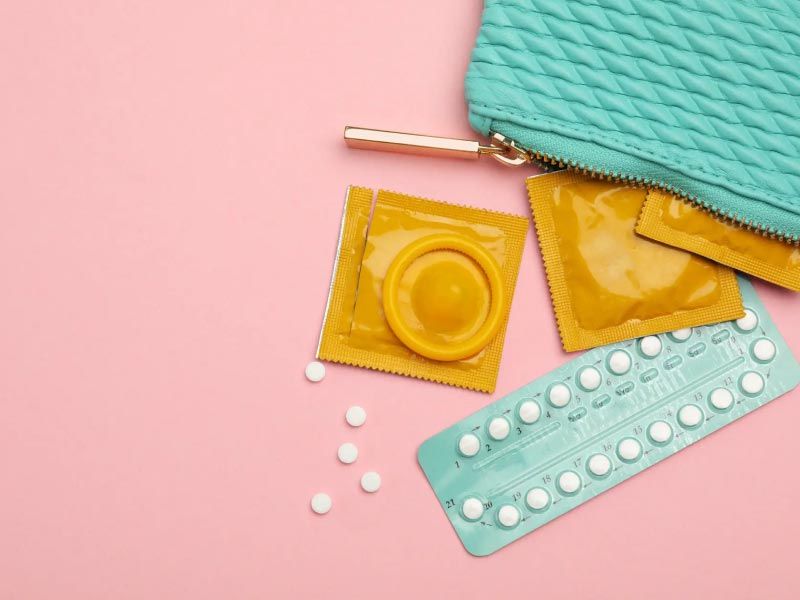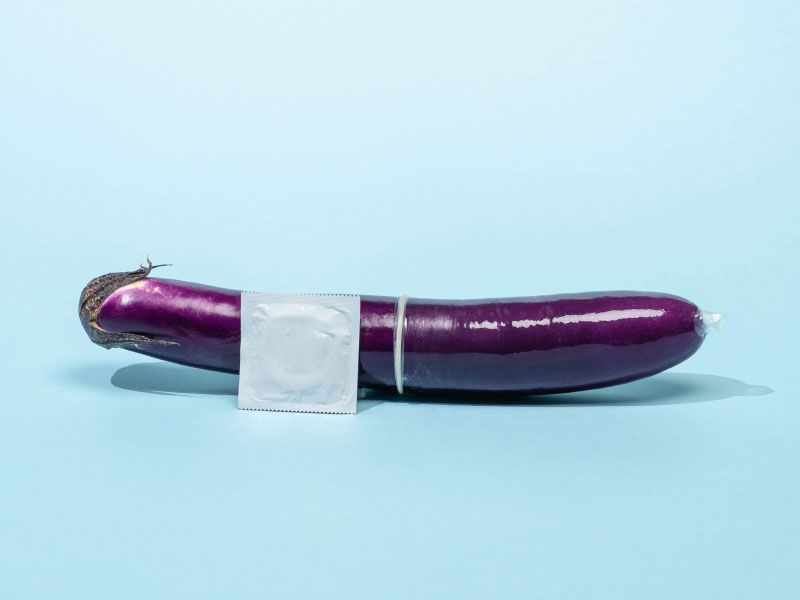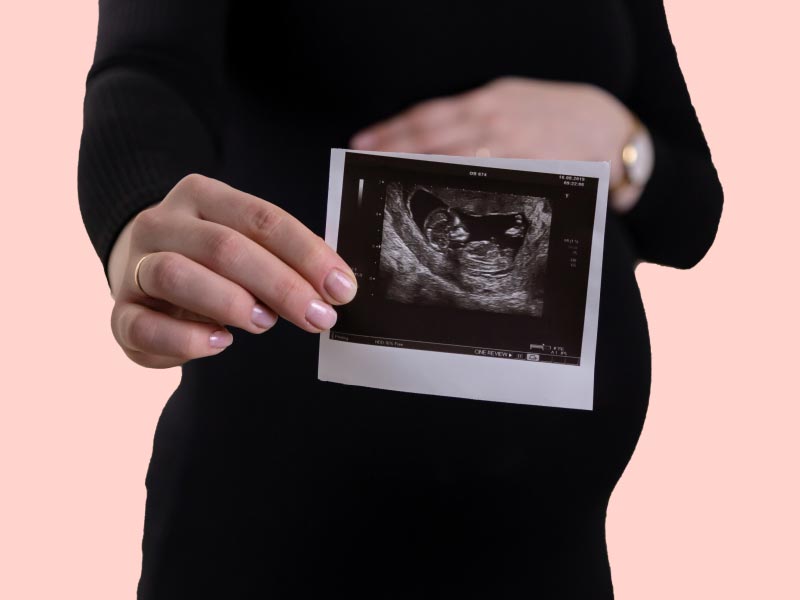
How Do Pregnancy Tests Work?
By Simona Byler
May 10, 2024
Pregnancy tests are featured in plenty of rom-com movies and TV shows, where the female lead miiiiight not use the test correctly. And while some folks might find that entertaining, we’d like to set the record straight! If you’ve had unprotected sex, your birth control has failed, or you’ve been trying for a baby, waiting for accurate pregnancy test results is a stressful and impatiently patient time.
Read on to find out how these tests work, how soon after unprotected sex you can take a pregnancy test, plus some quick dos and don’ts! Take a deep breath, count back to your last period, and don’t worry. You’ve got this.
What is a pregnancy test?
There are a few different types of pregnancy tests, but they all have the same goal: figuring out if you’re pregnant or not! A positive test means you’re pregnant, and a negative test means you’re not.
You might be wondering, how the heck do pregnancy tests work, anyway? These smart little test strips work by detecting a hormone called human chorionic gonadotropin (hCG). As soon as you become pregnant, your body starts preparing to support the cells that become a fetus. When a fertilized egg implants into your uterine wall, one of the first things your system does is develop a placenta, and the placenta produces hCG.
Your hCG levels double every few days during the first weeks of pregnancy. The more detectable your levels of hCG, the more accurate pregnancy test results will be! hCG production starts to ramp up six to 10 days after conception.
So, while you can take a pregnancy test as soon as 10 days after unprotected sex, taking a test too early can lead to a false negative result. You’ll get the most accurate results if you take the test after the first day of your missed period.
How do you take a pregnancy test?
There are two different ways to test for pregnancy: a urine test, and a blood test. At-home pregnancy tests detect hCG in your urine, and they’re just as accurate as urine tests you take at the doctor’s office! When used correctly, at-home pregnancy tests are 99 percent accurate. (1) So let’s discuss how to take a pregnancy test for the most accurate results.
First things first, take a deep breath and read the test instructions! Follow the instructions exactly, as different tests can work in different ways.
For most at-home pregnancy tests, you put the test strip in your urine stream, dip the test strip into a urine sample, or put a few drops of urine onto the test strip. Results are ready in two to five minutes, depending on the test. There’s usually a control window that tells you the test is working, and the results can show as a plus or minus sign, one or two lines, or even the words “pregnant” or “not pregnant”.
Other than the instructions, it’s important to read the pregnancy test box to check the expiration date. Don’t use the test if it’s out of date!
Pregnancy test dos and don'ts
We know that taking a pregnancy test is a nerve-wracking experience. And whether you’ve missed a few pills or you’ve been trying for a baby, you want to make sure you take the test correctly. Here are a few tips to help ease your test-taking stress:
- Take the test using your first morning pee if you can. That’s when your hCG levels will be the most concentrated and easiest to detect.
- If you missed your morning pee, wait two to three hours after your last pee to take the test.
- Don’t chug liquids to take a test, as that can dilute your hCG levels.
- Read and follow the test instructions exactly.
- Check the test expiration date.
At-home pregnancy tests are quick, affordable, and easy to find at most drug stores and supermarkets. There are a lot of tests to choose from, so pick the one that works best for you and put your mind at ease! Wisp is here for you whatever the result.
How soon after unprotected sex can you take a pregnancy test?
Have you recently had unprotected sex or think your birth control might have failed? Don’t forget that Wisp offers emergency contraception without a doctor’s appointment. And if pregnancy isn’t on your to-do list, waiting to see if you’ve missed your period can be an incredibly stressful few weeks. So let’s set the record straight on how soon after unprotected sex you can take a pregnancy test–with accurate results.
If you think you might be pregnant but haven’t missed your period yet, you can take an early detection pregnancy test 10 days after you have unprotected sex. (2) But! If you get a negative test result, you might still be pregnant. Your hCG levels are still too low for a test to be completely accurate.
Don’t worry! If you’re pregnant, your hCG levels will double about every 48 hours, so take another at-home test in a few days. Keep in mind that you will get the most accurate pregnancy test results after you’ve missed your period.
And if your periods are irregular or you’re not sure when your period should start? It’s best to take a pregnancy test 21 days after unprotected sex. (3)
How soon will a pregnancy test be positive?
Pregnancy tests work by detecting whether there’s human chorionic gonadotropin (hCG) in your urine or not. Your body starts producing hCG after implantation, or when a fertilized egg attaches to your uterine wall. This happens around six to 10 days after conception–from unprotected sex or a birth control failure.
So, how soon will a pregnancy test be positive? At-home pregnancy tests can differ in how early they detect hCG and give an accurate result. Plus, each person’s cycle is unique! When you ovulate and when implantation happens will vary from person to person. That means positive pregnancy test results can happen a few days earlier or later depending on your cycle.
To be sure, look for an early detection test and take another test after you miss your period. You know your body best, and tracking your cycle can help if you’re concerned about unplanned pregnancies.
How common are false positive pregnancy tests?
It can seem pretty wild to trust what a pee-covered stick says, but at-home pregnancy tests are 99 percent accurate when taken correctly! False-positive pregnancy tests are rare, but they can happen.
Here are a few causes for a false-positive pregnancy test:
- Chemical pregnancy: if a fertilized egg fails to implant into the uterus, it can cause a positive test result but result in an early miscarriage
- Recent abortion or miscarriage: a pregnancy test might detect your previous hCG levels, even though you are not currently pregnant
- Evaporation lines: if you wait too long to check your pregnancy test results, the urine might have evaporated and left additional lines that look like a positive result
- Fertility medications: some fertility medications increase your levels of hCG without you being pregnant
- User error: pregnancy tests can be tricky! Read the instructions carefully to make sure you receive an accurate result
While we’re not glad to say it, false-negative pregnancy tests are more common and usually due to taking the test too early. (4) Do your best to relax and practice patience so you get the most accurate pregnancy test results. We’re here to help while you wait.


